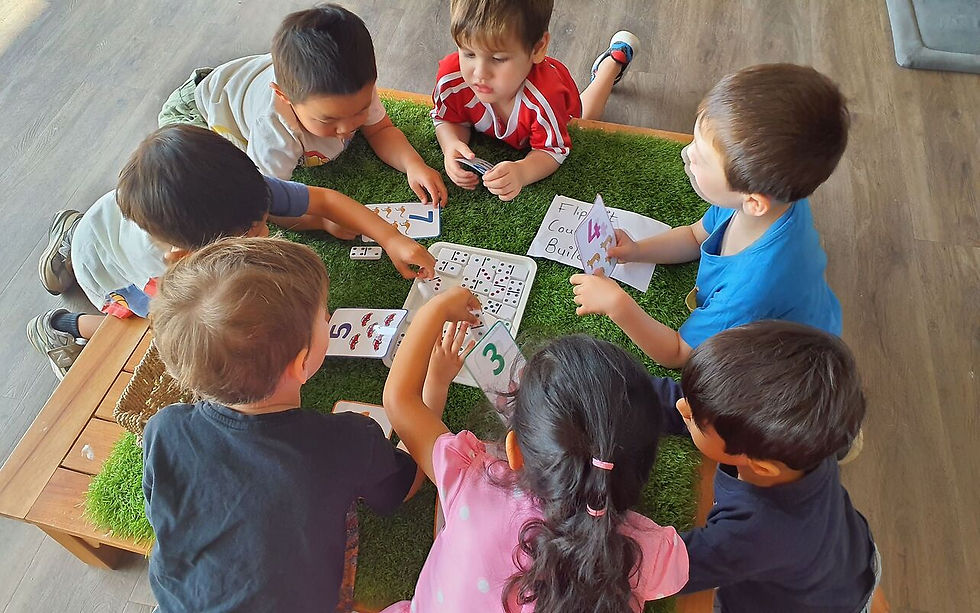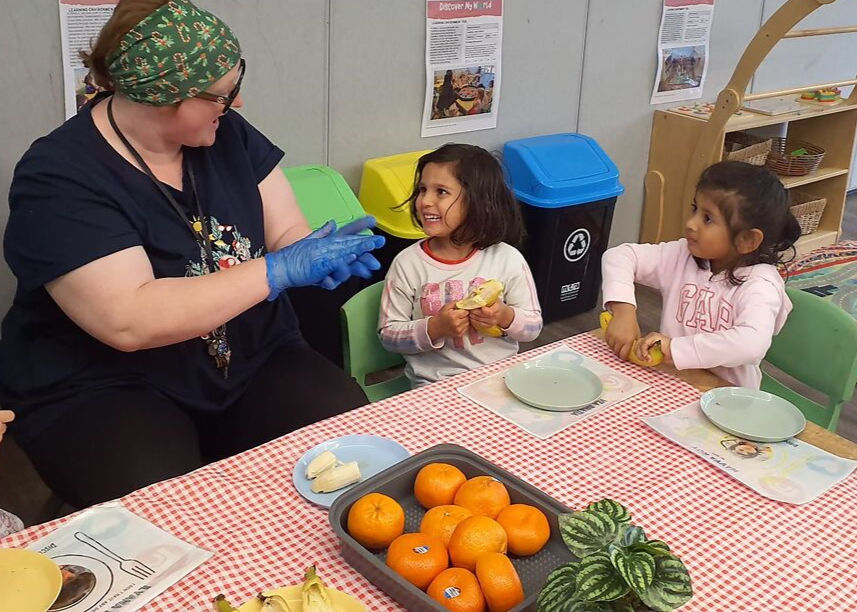Social & Emotional Readiness for Primary School (and how we nurture it at Discover My World)
- Discover My World

- Oct 21, 2025
- 3 min read
Starting “big school” is so much more than letters and lunch boxes. The strongest predictor of a smooth start is a child’s social and emotional readiness—their sense of self, ability to manage feelings, and confidence to build friendships and navigate new routines. NSW guidance is clear: when children experience a well-supported transition, their educational, social and wellbeing outcomes improve. NSW Education+1

What do we mean by “social & emotional readiness”?
The NSW Department of Education describes social-emotional learning (SEL) as developing self-awareness, self-management, social awareness, relationship skills and responsible decision-making—the five broad skill areas children keep building throughout school and life.
In practice, readiness looks like a child who is beginning to:
Name and manage big feelings (with adult coaching).
Join play, share, take turns and solve small problems with help.
Separate from caregivers with reassurance and settle into new routines.
Ask for help, follow simple instructions, and try again after setbacks.
Why it matters
Research collated by NSW’s Centre for Education Statistics & Evaluation (CESE) shows that transition is a process, not a day—and that strong relationships, shared information and planned transition activities (like orientation sessions and buddy programs) help children feel they belong, make friends and thrive. NSW Education

What families can do at home
Talk about feelings and “name it to tame it.” Read picture books about starting school and practice simple calm-down strategies together.
Practice little independences: opening lunch boxes, asking to use the toilet, packing a bag, and morning/afternoon routines.
Build familiarity: visit the school, attend transition/orientation sessions, organise a play-date with a future classmate if possible.
Keep expectations realistic: in the early weeks, prioritise rest, connection, and settling over academics—the learning will come.
How we support social & emotional readiness at Discover My World
At Discover My World (DMW), we wrap children (and their grown-ups) in practical, heart-led support:
Play-based projects that grow SEL every day. Our learning experiences intentionally model and coach the five SEL areas, naming feelings, problem-solving in play, collaborating on group tasks, and making thoughtful choices. This aligns with NSW guidance to integrate SEL across learning.
Relationships first. Key educator partnerships, warm welcomes and predictable routines build security and confidence, cornerstones of a positive transition.
Transition conversations that travel with your child. With your consent, we complete the NSW Transition to School Statement so your child’s new school receives a strengths-based snapshot (interests, strategies that work, supports). CESE’s evaluation found these statements help teachers and families feel better informed and support smoother starts.
Orientation and school-readiness experiences. We weave in “big school” rhythms, whole-group times, lunchbox practice, turn-taking games, and confident help-seeking, mirroring evidence-informed transition practices recognised by CESE.
Partnering with families. We share practical tips, check-ins and workshops so home and centre pull together (another CESE-highlighted success factor).
Individualised supports. For children with additional needs or who need extra time to warm up, we tailor plans and collaborate with allied professionals and the receiving school, an approach CESE identifies as best practice.
A quick myth-buster
School readiness isn’t about “being able to read and write before Kindergarten.” NSW Government advice frames readiness holistically, social-emotional skills, physical capabilities, communication and emerging cognitive skills all matter, and schools meet children where they are.
Trusted NSW-aligned resources for further reading
NSW Department of Education – Starting school (for parents & carers). Practical guidance on when to start, orientation and positive starts. NSW Education
NSW Department of Education – Transition to school (ECEC resource library). Why transition matters and how families, early learning and schools work together. NSW Education
CESE (NSW) – Transition to school: Literature review. Evidence on what works (relationships, information sharing, tailored transition programs). NSW Education
NSW Government – Transition to primary school. Clear overview of readiness across social-emotional, physical and communication d
omains. NSW Government
Raising Children Network (Australian Government-supported). Parent-friendly tips for preparing, managing feelings and the early weeks. Raising Children Network












Comments